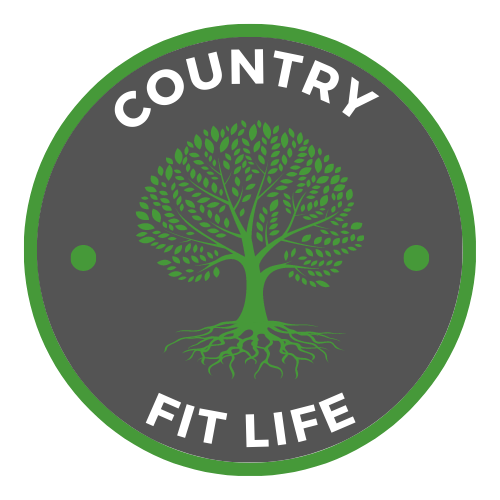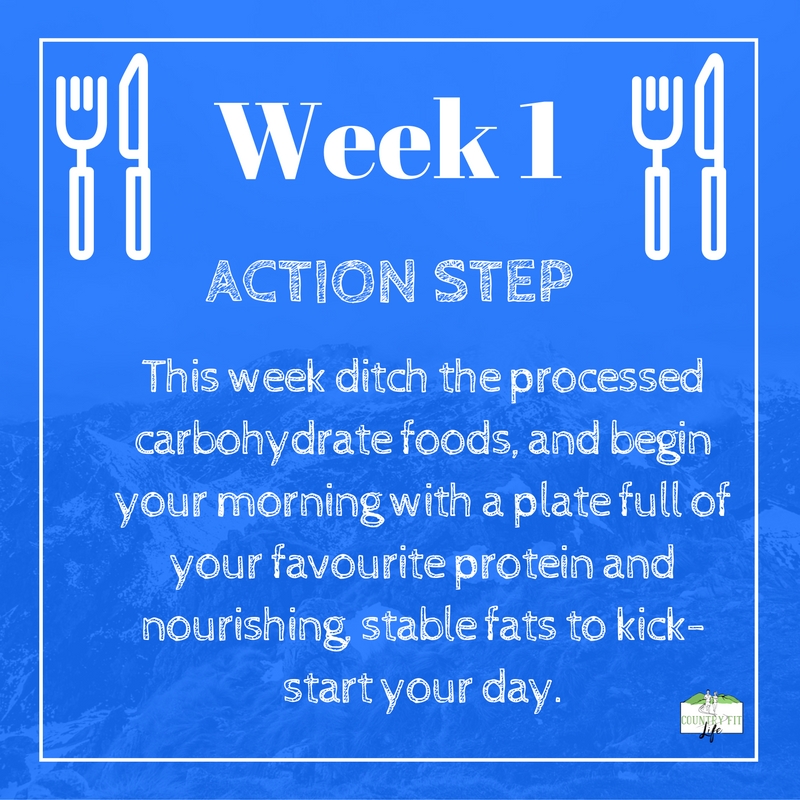For some people, the whole “ancestral” way of eating makes sense, but it’s just a little too intense to commit to all at once.
And yes people… that is OK.
Sometimes, our lives are bombarded with so many other stressors that attempting to revamp our “food life” creates even more stress, this sets us up for failure and destroys all chances of long-term success. The truth of the matter is, even the most super healthy, nutrient dense diet in the world cannot undo the adverse effects of added stress. The physiological stress response effects on your overall health negate the benefits you’d otherwise reap from eating a healthier diet.
Now, this isn’t me telling you to continue to eat sugar coated cereal for breakfast and pizza for lunch just because you experience stress in your life. When making changes, some people (like me) prefer to dive head first and change everything at the same time. But others prefer the longer, slower approach… making small changes, one at a time. Taking baby-steps can prevent the feeling of overwhelm and gives your life time to adjust to a new way of doing things.
So, take it easy on yourself…don’t stress, I’m skipping the small stuff and going straight to the changes that will provide you with the biggest return when it comes to living a healthy “modern human” lifestyle. What’s even better, I think you’ll be happy to know – it’s really quite simples!
There is no debate – what you eat affects the way you look, feel, and how your body performs. Even if you may not be ready to put down that piece of toast just yet, there are some simple, yet effective changes you can make that will have a huge affect when it comes to increasing your vitality and fighting disease.
I don’t want to stress you out, so I am going to introduce the tips to you over three weeks so you can adjust weekly.
Tip 1: Eat Fat for Breakfast.
Some of my favourite sources of fat include, eggs, avocado, fatty fish like sardines, raw milk (if tolerated), coconut milk, fresh vegetables and meats cooked in ghee, butter or coconut oil. Fats like these put your body in an incredibly beneficially metabolic state that will set your entire day up for success. Fat is one of the body’s most basic building blocks, and not only is fat super satiating (makes you feel full), it also keeps blood sugar levels balanced, resulting in less fatigue, sugar cravings and hunger pains throughout the entire day. The right fats also increase fat burning, curbs our hunger and reduce fat storage.
Eating high carbohydrate foods like cereal, toast, granola bars, and pastries satiates your current hunger but sets you up for metabolic disasters and spikes your blood sugar, leading it to drop it abruptly. This is that “energy crash” you feel that leaves you raiding the vending machine mid-morning and mid-afternoon. If you’re looking to lose a few pounds, a multitude of studies have found that eating eggs for breakfast not only increases energy and satiation, it also results in eating up to 400 calories less throughout the day when compared to an equal-calorie breakfast of a bagel.[1][2]
Still scared that eating more good fat’s is somehow going to give you heart disease? A multitude of studies, including a large meta-analysis published in 2010 reveal no association between saturated fat and heart disease.[3][4] This year, the U.S. Dietary Guidelines for the first time removed their long standing restrictions on dietary fat.
“The myth is that fat makes you fat and fat causes heart disease,” says Mark Hyman, M.D., a nationally known health expert and director of the Cleveland Clinic’s Center for Functional Medicine.
Action Step: This week ditch the processed carbohydrate foods, and begin your morning with a plate full of your favourite protein and nourishing, stable fats to kick-start your day.


